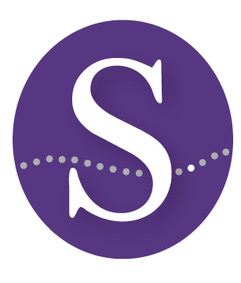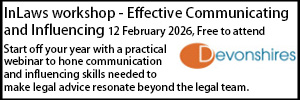- Details
Reflections on the SQE
 Having recently passed the SQE2, Susan Desfontaines sets out some of the lessons she learned from the process.
Having recently passed the SQE2, Susan Desfontaines sets out some of the lessons she learned from the process.
From the outset let’s be honest about the SQE exam and how it should be viewed by candidates aspiring to qualify through the route.
It is not to be trifled with unless you have a dogged determination to pass and prepare for it with practice on a level akin to Rocky Balboa preparing for his next title fight.
I hummed the Rocky theme tune all the way home from my SQE 1 exam, such was the relief to get it over with.
By the end of SQE2 I was sleep deprived and upon arriving home made like a hibernating hedgehog for the following 24 hours.
Students can spend large amounts of cash by failing and having to re-sit, paying again for the “pleasure”.
Results take such a long time to be returned to you so that, even if you have the cash to re-sit, your career progression can be extended for an amount of time that is more frustrating than waiting for the phone to be answered by your energy provider.
Happily, I went straight through both SQE1 & SQE2 on my first attempts, but the aim must be to prepare with military precision, pass the exam and get on with your legal career, unless you want to manage increased debt and physical burn out.
For those contemplating the exam here is what I learnt along the way and the answers to the questions I am most often asked.
Prep courses
You can pay for your exams and sit them without the requirement to complete a prep course.
However, doing this is like buying a car and learning to drive without any driving instructor. Crash the car (i.e. fail the exam) because you have not mastered the right skills and you will be paying out for repairs before you can continue to qualify for your license.
In short, I would not recommend it.
A good prep course, and the exam fees will raid around £10,500 from the piggy bank, so it is best to prepare to succeed first time.
I personally prepared with Barbri, and yes, I would recommend them.
Funding
Self-funded
If you have the money saved (or a wonderful bank of mum and dad) then happy days. But you owe it to yourself (or to mum and dad) to make the best use of your hard-earned savings.
If you are self-funding then realise that you now have a duty to yourself to give it your best shot, anything less, and SQE costs can get “unreasonable and disproportionate” fast.
Funded by Employer
Some firms / organisations will fund the SQE for students, however this can be a double-edged sword.
Many will require you to remain in their employ for a set period after passing the exam they have funded, and commercially this is very reasonable.
However, if you find that you become unsettled at work, or you do not enjoy the type of work you end up doing, then you must be prepared that your freedom to move elsewhere, once qualified, could be limited.
The pressure to pass is increased, at a time when dealing with the pressure is a fundamental factor in how you perform, particularly in the SQE2, and so before you dive headlong into a “funded for you” agreement, look the gift horse squarely in the mouth and ask yourself the following:
- What commitment will I have to my firm / organisation after qualification?
- What support will be available to me during my QWE with them?
- What sort of work will I be undertaking, and will it be a practice area I will enjoy for the term I am committed for?
- What package does my employer propose I will be offered upon qualification?
If a firm or organisation is going to commit to invest in you then you must be absolutely sure you can give them back the same commitment, wholeheartedly.
SQE LLM
You can now do the SQE with an LLM, but let’s be clear, having a Masters, while great for the CV, will not help you pass the SQE. It is the SQE prep that will get you through the exam itself, and while the SQE LLM allows you to fund through a student loan, students would be wise to consider if they are about to take on significant extra student debt just to achieve easy SQE funding.
Fund as you earn
The SQE route requires qualifying work experience (QWE) and so students should consider if the work experience they embark upon allows them to meet the costs of the exam in stages from earnings.
I was effectively a fee earner from the outset and so my hourly rate was higher than past training contract candidates with the same organisation. That said, it still did not allow me to finance my life and the SQE, so by opting to do my QWE on a part time basis and by working the rest of the week in non- legal, the combined rates I earned allowed me to put by enough to fund both.
Granted it took longer, but the advantage was threefold:
- The pressure to take SQE1 and SQE2 in quick succession was negated, because I timed my exam results to coincide with the end of my QWE,
- I now move forward with no debt incurred, and
- I have wider choices now that I have qualified.
SQE 1
The SQE1 is separated into two sections, functional legal knowledge 1 and functional legal knowledge 2 (FLK 1 & FLK2). The practice areas are split between the two, with ethics and tax featuring in both FLK 1 & FLK2
It is multiple choice, and the mistake would be to think that because it is multiple choice it is easy to pass.
Be warned; The answer choices are sometimes as nuanced as shades of the right answer and only one is correct. The subjects are mixed within FLK 1 or FLK2 from one question to the next, and so you have no opportunity to “settle into” a subject area. There are 360 questions to answer at a rate of 1.4 minutes per question, and the fastest way to fail the exam is to get the timings wrong.
The exam time will fly by faster than a jet breaking the sound barrier and you must be prepared for the speed of it.
SQE 2
In some ways the SQE2 feels like a more grown-up exam than the speedy, headbanging, and brutal feel of SQE1, and the skills of client care, advocacy, professional ethics and conduct are tested through a combination of written and oral tasks.
Despite the focus of the exam, you cannot show your skills without having a good grip of the legal principles that were tested on SQE1 and so while you practice for SQE2 it is imperative that you keep revising your legal knowledge from SQE 1 at the same time. It is still a closed book exam, and you will be expected to know and recognise the legal principles that need addressing as they present themselves in the SQE2 exam.
Orals
Many students in my peer group dreaded the advocacy tasks going into the exam and this is quite understandable.
Unless you are lucky enough to have come from a local authority background, where there may have already been some opportunity to present in court, or a lawyer from another jurisdiction cross qualifying, most students will have never advocated before a judge or magistrate’s bench.
The answer is simply to get out of your comfort zone and practise, either with a study buddy or in front of a mirror.
At first this will feel like walking over cobbles in six-inch stilettos but do it enough and you will soon be skipping along, and the better practised you are, the better you will deal with the exam.
To my mind part of the SQE2 is to test how you deal with the unexpected or perform under pressure (unsurprisingly, no mention of this in the SRA’s exam outlines). Know it, accept it now, and know that you are not expected to be perfect at everything. You simply need to behave professionally and ethically when under pressure.
If the unexpected happens, take a breath, take a moment to think, and deal with the bump professionally and honestly.
The examiners are looking to give you marks, not trip you up or fail you, so see the orals as an opportunity to go through the task collecting as many marks from them as you go along in the test.
Written
The hardest part of the written test is the timeframes for the tasks and the computer will simply shut you down after the allowed time and make you move on to the next task.
You will get the best results from the written if you prepare by doing every task you practice in the given SRA time from the outset. At first your scores will suffer, but, as you progress with your prep, your scores will climb as you become more focused on what elements you need to cover in a document to collect enough marks to pass.
Business is heavily examined in the SQE and a whole day of written is dedicated to the area. Use your commercial acumen as well as your law knowledge and ask yourself are there any non-legal solutions that can be considered to provide a solution.
Superior performances can be gained by the “added value factor” and the best interest of your client in achieving a solution.
Waiting for results
The hardest part of the SQE, it could be argued, is the wait for the results. I virtually fossilised waiting for the SQE2 results and the temptation is to allow your mind to constantly revisit anything that went wrong, or you could have done better. Over a 4½-month period this can grind your wellbeing into dust finer than dark materials if you allow it to.
Know that no amount of worry will change the result and often what you think did not go so well can turn out to be merely a small slip that will not bring your chances of passing crashing into oblivion. When waiting for results be fatalistic in your thinking. Fully accept you may pass. Fully accept you may fail. Have a plan for both eventualities, and then box the feelings of torment and put them on the emotional shelf, not to be opened again until results day.
 Overall impact
Overall impact
Weirdly, once I got over my fright, I quite enjoyed doing the exam, particularly SQE2, where you can interact, show some personality, and prove to yourself, as well as the examiner, just how much you are capable of.
The prep for both SQE parts has undoubtedly made me a better lawyer and I like the extra knowledge I have gained.
I am better for it. I am stronger for completing the process.
I looked the SQE experience in the face, and because I gave it my best, I can be happy with the reflection that looks back at me.
Susan Desfontaines
Commercial Lawyer
Child Care Lawyer
Solicitor - Civil and Criminal Litigation
Legal Director - Government and Public Sector
Solicitor - Contracts and Procurement
Head of Legal
Litgation Solicitor
Solicitor - Civil and Criminal Litigation
Locum roles
 Cornerstone Barristers roundtable on the Draft NPPF: Plan-Making Provisions
Cornerstone Barristers roundtable on the Draft NPPF: Plan-Making Provisions
09-02-2026 2:00 pm
London
 Breakfast Briefing – Commonhold & Leasehold Reform Bill – a session focusing on the key themes of the Bill and the Consultation on Banning Leasehold for New Flats - Devonshires
Breakfast Briefing – Commonhold & Leasehold Reform Bill – a session focusing on the key themes of the Bill and the Consultation on Banning Leasehold for New Flats - Devonshires
12-02-2026 8:30 am
London
 Planning, Property and Power Webinar Series: Strategic energy planning - Landmark Chambers
Planning, Property and Power Webinar Series: Strategic energy planning - Landmark Chambers
12-02-2026 10:00 am
Online (live)
 Public Sector Insights – NHS Continuing Healthcare (CHC) in Wales - Blake Morgan
Public Sector Insights – NHS Continuing Healthcare (CHC) in Wales - Blake Morgan
12-02-2026 10:00 am
Online (live)
 InLaws workshop – Effective Communicating and Influencing - Devonshires
InLaws workshop – Effective Communicating and Influencing - Devonshires
12-02-2026 2:00 pm
Online (live)
 HMPL Building Blocks: Legal Tools to Combat Anti-Social Behaviour - Devonshires
HMPL Building Blocks: Legal Tools to Combat Anti-Social Behaviour - Devonshires
17-02-2026
Online (live)
 Data Controller, Processor or Joint Controller: What am I? - Act Now
Data Controller, Processor or Joint Controller: What am I? - Act Now
18-02-2026 10:00 am
Online (live)
 Freedom of thought, belief and religion: Article 9 ECHR - Francis Taylor Building
Freedom of thought, belief and religion: Article 9 ECHR - Francis Taylor Building
19-02-2026
Online (live)
 AI and Information Governance: Bridging Innovation and Compliance - Act Now
AI and Information Governance: Bridging Innovation and Compliance - Act Now
19-02-2026 10:00 am
Online (live)
 Safeguarding Issues and Fairness in Investigations and Hearings - 3PB
Safeguarding Issues and Fairness in Investigations and Hearings - 3PB
24-02-2026 11:00 am
Online (live)
 Children and Young People (DoL, Competency and Capacity) - Peter Edwards Law Training
Children and Young People (DoL, Competency and Capacity) - Peter Edwards Law Training
25-02-2026
Online (live)
























































































































 The General Data Protection Regulation - Act Now
The General Data Protection Regulation - Act Now  Interveners in financial remedy proceedings - 42BR
Interveners in financial remedy proceedings - 42BR  The Procurement Act - One Year On - DWF
The Procurement Act - One Year On - DWF  The ERA – An Overview - Sharpe Pritchard
The ERA – An Overview - Sharpe Pritchard  Short Term Lets - Ivy Legal
Short Term Lets - Ivy Legal 